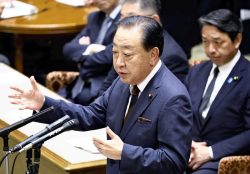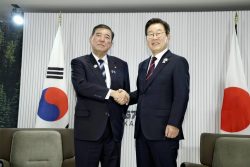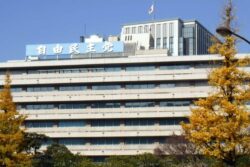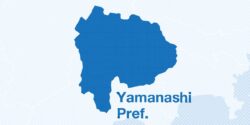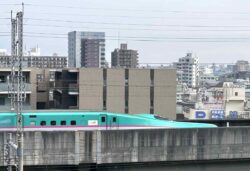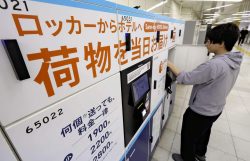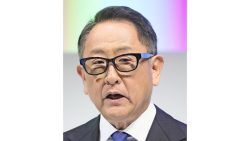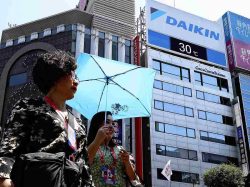U.S. Tariffs, Rice Prices Discussed in Basic Economic Policy Draft; Disaster Prevention Agency Also Discussed

Prime Minister’s Office
14:56 JST, May 31, 2025
The government will aim to maintain the free trade system by taking the lead in expanding the Trans-Pacific Partnership agreement, as part of its efforts to respond to U.S. tariff measures, according to the draft of its basic economy policy for the next fiscal year.
The draft of the “Basic Policy on Economic and Fiscal Management and Reform” also states that the government will “review rice farming policies to address soaring rice prices.”
U.S. tariff measures “could shake the free trade system built by the post-war international community,” the draft says. It goes on to state that the government will “grapple with maintaining and strengthening international economic order based on free and fair rules” through international cooperation, such as expanding the TPP and building a more resilient supply chain.
Regarding the domestic economy, the draft states it is necessary to take caution against possible impacts of the tariff measures and the economic risks of surging prices.” It stresses the need to mobilize all possible policy measures, including passing costs onto prices as appropriate, to increase people’s income and the country’s productivity.
Touching on the soaring rice prices, the draft states the government will ensure the stable supply of rice through the smooth distribution of its stockpiled rice. It also states that the government will take concrete steps to review its rice farming policies.
Prime Minister Shigeru Ishiba has expressed his willingness to review the policy of adjusting rice production, which is effectively a policy of reducing rice acreage, and instead expand sales channels by increasing rice exportation. These stances are reflected in the draft.
The draft makes reference to a disaster prevention agency, which the government aims to establish in fiscal 2026. The envisaged organization will be positioned as the central command for the entire government on the coordination of policy measures for disaster prevention.
The draft states that the agency will have the authority to issue recommendations to other government bodies, and that the government will secure sufficient funding and personnel for the agency as well as appoint a dedicated cabinet member to head it. According to the draft, the government will also consider setting up regional bases for disaster prevention, an idea which Ishiba has touted.
Following adjustments by the ruling parties, the basic policy is expected to be approved by the Cabinet as early as on June 13.
"Politics" POPULAR ARTICLE
-
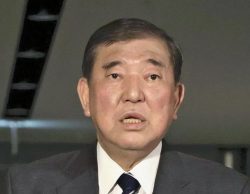
Japan to Offer U.S. Proposals for Cooperation on Rare Earths, Semiconductors; Potential Measures Could Help Counter China, Correct Trade Deficit
-

Japan Govt to Create Guidelines for Data Leak Prevention at Research Institutes; AI R&D, Risk Management to Be Balanced
-

Japan Coast Guard Begins Employment Scheme for Retiring MSDF Personnel; Aims for 15 Recruits in FY25
-
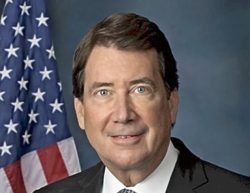
U.S. Senator and Ex-Ambassador to Japan William Hagerty: Economic Security, National Security Are Tied
-

Japan Defense Ministry Team to Discuss Drones, AI in Combat; Will Learn From Ukraine War, International Cooperation
JN ACCESS RANKING
-
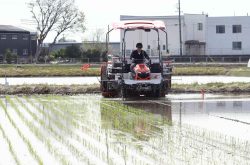
Aichi Rice Production Under Siege from Warming Climate; Record Heat Stunts Crop Growth, Causes Greater Pest Activity
-

Japanese Researchers Develop ‘Transparent Paper’ as Alternative to Plastics; New Material Is Biodegradable, Can Be Produced with Low Carbon Emissions
-
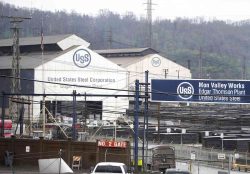
Trump: Nippon Steel Will Part Own U.S. Steel, U.S. to Be in Control; Share Distribution, Other Details Remain Unclear
-

Japan’s Core Inflation Hits More than 2-year High, Could Force Year-End BOJ Hike
-

Japan’s Cooperation in Alaska LNG Development Project Emerges in Japan-U.S. Tariff Negotiations; But Industry Concerns Exist


